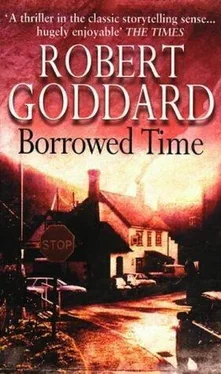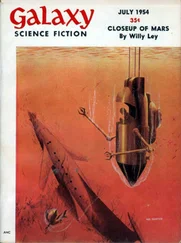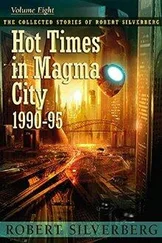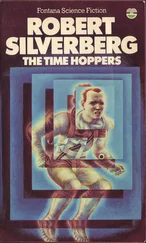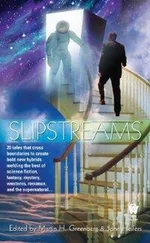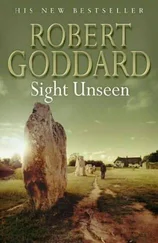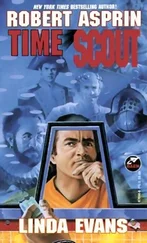Robert Goddard - Borrowed Time
Здесь есть возможность читать онлайн «Robert Goddard - Borrowed Time» весь текст электронной книги совершенно бесплатно (целиком полную версию без сокращений). В некоторых случаях можно слушать аудио, скачать через торрент в формате fb2 и присутствует краткое содержание. Жанр: Триллер, на английском языке. Описание произведения, (предисловие) а так же отзывы посетителей доступны на портале библиотеки ЛибКат.
- Название:Borrowed Time
- Автор:
- Жанр:
- Год:неизвестен
- ISBN:нет данных
- Рейтинг книги:5 / 5. Голосов: 1
-
Избранное:Добавить в избранное
- Отзывы:
-
Ваша оценка:
- 100
- 1
- 2
- 3
- 4
- 5
Borrowed Time: краткое содержание, описание и аннотация
Предлагаем к чтению аннотацию, описание, краткое содержание или предисловие (зависит от того, что написал сам автор книги «Borrowed Time»). Если вы не нашли необходимую информацию о книге — напишите в комментариях, мы постараемся отыскать её.
Borrowed Time — читать онлайн бесплатно полную книгу (весь текст) целиком
Ниже представлен текст книги, разбитый по страницам. Система сохранения места последней прочитанной страницы, позволяет с удобством читать онлайн бесплатно книгу «Borrowed Time», без необходимости каждый раз заново искать на чём Вы остановились. Поставьте закладку, и сможете в любой момент перейти на страницу, на которой закончили чтение.
Интервал:
Закладка:
Uncle Larry had come out of retirement to chair the board on a temporary basis. It was he and my mother who put a suggestion to me the day after the funeral which I was still mulling over a month later when I set out from Knighton. Though the youngest of us, Adrian had worked in the company the longest. He also had two sons, which was two more than the rest of us put together and by my uncle’s quaint logic made him a fitting guardian of family tradition. Moreover, by virtue of some shares held in trust for the eldest of those sons, Adrian brought more voting power to the table than Simon, Jennifer or me. The managing directorship was properly his, they explained. With the support of Hugh’s widow, Bella, who had inherited his shares, they proposed to offer Adrian the post. But they foresaw friction between him and Simon. Well, that hardly required a crystal ball. What was needed was a calming influence, somebody to succeed Adrian as works director and bring the cool good sense of a trained economist to the board’s deliberations. What was needed, in short, was me.
Their case wasn’t, to be honest, a strong one. I’d worked in the factory during university vacations and in the office during the eighteen months or so it had taken the European Commission to decide they wanted me. But that was all a long time ago and my background in economics was so much eyewash. What my mother really wanted was to lure me home and see me settled in Petersfield, ideally with a wife and children, before she died. Uncle Larry was more than willing to play along. And I was tempted to do the same-for reasons of my own.
I didn’t tell them how eager I was to leave Brussels, of course. I didn’t want them-and I especially didn’t want my brothers or sister-to think they’d be doing me a bigger favour than I’d be doing them. I did my best to imply that for the sake of the family I might be prepared to give up my lucrative career-on the right terms. But there was the rub, as the Commission’s conditions of service artfully ensured. The terms would never be good enough. Frustrated or not, as a fonctionnaire I was feather-bedded. With Timariot & Small, I was going to feel the draught.
Then there was the future of the company to consider. I wasn’t absolutely sure it had one. A past, yes. In 1836, my great-grandfather Joseph Timariot went into partnership with John Small making cricket bats in a modest workshop in Sheep Street, Petersfield. With one change of site-to the present factory in Frenchman’s Road-the business had grown since into something like the third largest manufacturer of cricket bats in the country. But that hardly made it General Motors. It employed about fifty people in a medium-sized Hampshire market town, using old-fashioned methods to turn out a handcrafted product in one branch of the sports industry where the Far East hadn’t yet caught up with English traditions. The past it proudly possessed, in faded medal certificates from the Great Exhibition, in brown-edged letters of appreciation from Edwardian cricketers, in the sawdusty air of the workshop my father walked through in the footsteps of his father and his father before him. But the future? Did that really hold a place for the likes of Timariot & Small?
The Timariot family, as I saw it, was in danger of putting all its eggs in one very old and increasingly frail basket. I don’t think my father ever thought all five of his children would work for the company. Until his retirement, only Hugh had done so. Then Adrian went into the business straight from school. Uncle Larry retired a few years later and was succeeded as finance director by Jennifer, who until then had been working as an accountant for a supermarket chain. When my father died, Hugh became chairman in fact as well as name and promptly installed Simon as marketing director, rescuing him from some long and inglorious struggles as a photocopier salesman. Which left only me on the outside.
Where good sense suggested I should remain. But the offer of a directorship had been made. And, flushed with generosity following his move to the top of the table, Adrian was happy to confirm it. Simon and Jennifer, seeing me, I suspect, as some sort of check on Adrian ’s power, urged me to accept. I went back to Brussels promising to give them a decision during the fortnight’s leave I’d booked for late July.
So, in a sense, the Rubicon rather than the Severn waited for me at the end of Offa’s Dyke. But careworn was the last thing I felt when I stepped out of the George & Dragon in Knighton early that Tuesday morning. I took one glance up at the clock tower, then headed down Broad Street in the direction of the Dyke. My rucksack was full, but, strangely enough, my shoulders felt as light as if they’d just been relieved of some heavy burden. For six days I was free, incommunicado, unobtainable, gone away. For six days, I was my own man.
I walked south through the rolling East Radnor hills as the sun climbed burningly in the sky, shadeless ridges alternating with steep wooded valleys. At some point of the early afternoon I’d have been able to see Hergest Ridge ahead of me, if I’d troubled to look at my map and pick it out through the heat haze. But it was only one landmark among many to me then. Just a name and a place.
I spent the hottest hour and a half of the day in a pub off the route, then pressed on towards the next town on the Dyke: Kington. It waited below me as I rounded the eastern flank of Bradnor Hill: a compact huddle of slateroofed houses dozing in the sunshine, with the Black Mountains rising beyond. It was a sleepy vision of rural England, with a picturesque touch of wild Wales thrown in.
My destination that night was Gladestry, a village about three miles west of Kington, where I’d booked a room at the Royal Oak Inn. The walk to it along Hergest Ridge was a pleasant one according to my guidebook, so I’d decided to leave it until the cool of the evening. I spent the late afternoon in Kington, pottering aimlessly round the shops until the pubs opened and I could slake my thirst. At a corner table of the Swan Inn, I eavesdropped happily on the local gossip while trying to do some of the thinking my week in the hills was supposed to facilitate. Giving up on the grounds that there were another five days for that sort of thing, I wrote a postcard to my mother instead. It was a muddy-coloured shot of Kington Market Hall circa 1960 and was the only depiction of the town I’d found in any of the newsagents’ carousels. I dropped it into a pillarbox on my way back to the path.
The ascent to Hergest Ridge was a narrow tarmac lane called Ridgebourne Road, deteriorating after it had passed a few houses into a stony track. I started up it shortly after seven o’clock. The going was steep but steady. Midges were massing between the fern-banks to either side, the sunlight filtering warmly through the foliage. It was-I’d have said if anyone had asked me-a perfect summer’s evening.
A five-bar gate separated the end of the track from the open moorland of the ridge. To the right of the gate, a car had been parked beneath the trees. It was a G-registered white Mercedes two-seater, gleaming from a recent clean. I glanced at it approvingly-even enviously-as I passed, thinking of the wretched little can-on-wheels I ran around Brussels. Some people, I reflected, had all the luck.
I went through the gate and out onto the ridge: a whale-backed expanse of grass and gorse, views to the north opening up as I gained height. Sheep were bleating everywhere, occasionally scattering as I came on them unawares. I passed two weary-looking walkers bound for Kington, who nodded in some kind of fellowship at the sight of my rucksack. Otherwise, my attention was reserved for the horizon of hill and forest, bathed in fading sunlight. As mornings bring expectation, so evenings, I suppose, are naturally peaceful. Certainly, I felt something very like peace descend on me as I gazed out at the loveliness of one portion of my homeland. Returning to the Berlaymont after this, I realized, was going to be like returning to prison.
Читать дальшеИнтервал:
Закладка:
Похожие книги на «Borrowed Time»
Представляем Вашему вниманию похожие книги на «Borrowed Time» списком для выбора. Мы отобрали схожую по названию и смыслу литературу в надежде предоставить читателям больше вариантов отыскать новые, интересные, ещё непрочитанные произведения.
Обсуждение, отзывы о книге «Borrowed Time» и просто собственные мнения читателей. Оставьте ваши комментарии, напишите, что Вы думаете о произведении, его смысле или главных героях. Укажите что конкретно понравилось, а что нет, и почему Вы так считаете.
